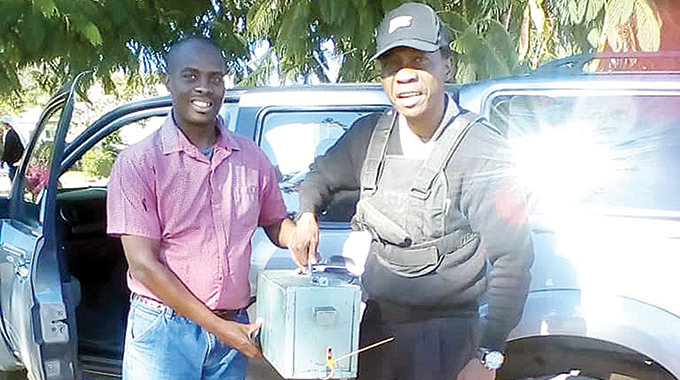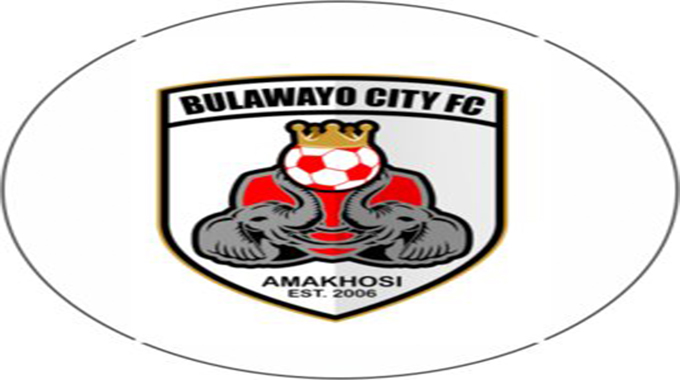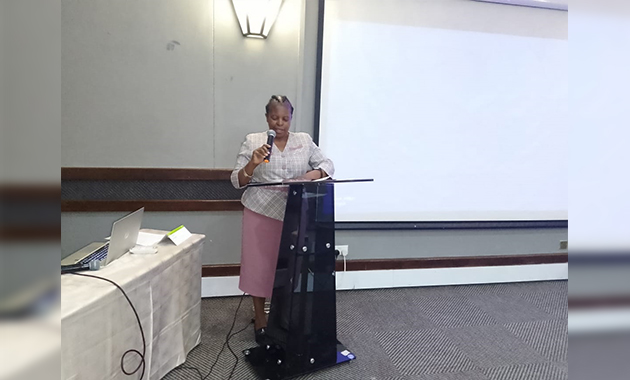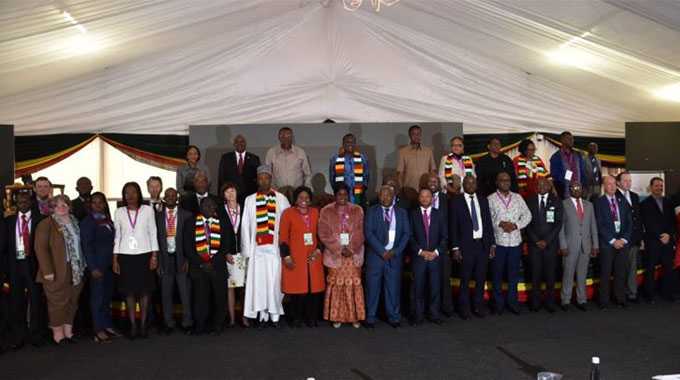Rescue skills necessary after road accidents

Nkosilathi Sibanda
WHEN Mr Mlondolozi Mpofu chose to rescue cash-in-transit guards trapped in the wreckage of a road traffic accident in Lupane, instead of dashing off with the US$100 000, it was one rare show of humane behaviour that ought to be applauded.
With the tough lashes he received as news of his heroic gesture filtered, there remained a question: How many of us are well positioned to give emergency rescue at the scene of an accident?
The incident brought closer the discussion of how prompt local rescue services are to accidents that occur on major highways. After a thorough analysis of road mishaps globally, the United Nations came to a conclusion that most deaths occur in the first hour after an accident.
Within that hour, it is claimed that there is an opportunity for as many victims to get a chance to live.
This is what prompted road traffic agencies the world over to kick start a campaign dubbed the “Golden Hour Emergency Rescue Service”.
But locally, even if the Traffic Safety Council of Zimbabwe (TSCZ) is making headway in informing the travelling public about the importance of that first hour, not many seem to care, especially when it comes to rescuing accident victims in the shortest period.
It has been the norm that road traffic accidents happen and people tend to be mere onlookers who take pictures to share on various social media platforms.
First responders to the scene of a serious, possibly deadly crash are the ones that hang on to social media, posting pictures. Passersby turn to villains who throw away basic human instinct of “I am my brother’s keeper”. In the event of an accident, the overlying tradition nowadays is rather shifting toward an “I don’t care” attitude.
Being the first to snap and post an accident scene seems to be everyone’s routine. Sadly, the aspect of safety eludes many in such situations. Traffic safety experts opine that accident scene “picture fanatics” expose themselves to danger as they risk being run over or suffering trauma afterwards.
The inhumane behaviour has oftentimes caught the ire of society as it appears that road traffic mishaps are now objects of entertainment. These onlookers wait for medical rescue teams to arrive, when conscience must demand that one helps in whatever capacity they can.
At the scene of the Brooklyn bus that caught fire near West Nicholson recently, one emergency rescue worker at the crash site, Ms Nompilo Sithole, said they noticed drivers slowing down, pulling out their phones to snap pictures which is something she said not only shows complete disregard for the victims, but is also illegal and dangerous.
“Rescue comes first before we get all frenzied with taking pictures. Road safety starts from one’s mindset. Let us hit home the point to all fellow Zimbabweans that when one encounters an accident and takes photos, it is not only disrespectful but dangerous.”
“The first concern we have is obviously the fact that if drivers use cell phones while driving, they are distracted and that actually puts everyone at risk for a secondary collision which we certainly don’t need when we are already dealing with a very challenging scene. Also, people don’t understand that when we’re dealing with a crash like that, people’s lives are at stake. People don’t understand that we need them just to focus on their driving and pass the accident in a safe manner,” she said.
In 2017, a motor biker Mr Julius Mathe lost his life as he rammed into a pole in Baobab suburb in Hwange. Neighbours and passersby who witnessed the accident went on to first record the scene on their smart phones before checking the severity of the accident.
Mr Mathe died an hour later when the emergency medical rescue crew arrived. There were witnesses who claim that the motor cyclist’s life could have been saved had those that were first to the scene, chosen to help.
This year, a chilling encounter shook the cyber world as pictures of a Harare-bound bus that caught fire on South Africa’s N1 highway spread on social media. Within minutes, the incident was viewed by millions yet none among those sharing pictures dared to assist in saving lives.
All these incidents draw to one aspect that needs to be done – that is advocating for training in road traffic accident rescue. While many road accident victims and witnesses do not have first aid skills, it is prudent to apply human survival instincts whenever an accident occurs.
Players in the emergency medical rescue sector believe it is high time people equipped themselves with essential knowledge on how to deal with safety on roads. Public transport companies are put to task to ensure drivers and conductors have the requisite first aids skills.
Although accidents are attributed to human error, drunkenness, misjudgment and poor road surfacing, it is wise for society to accept that when they occur, lives must be saved in the shortest time possible.
In all aspects, road traffic safety also entails the ability to be mindful of how best to prevent losses that further harm human existence and the country’s economy. TSCZ information, communications and technical manager Mr Tatenda Chinoda said emergency rescue skills are an important aspect in the process of road safety.
He said in as much as society needs to be knowledgeable on handling accidents first hand, there is a need for the public to know how best to avoid loss of life within the first hour of the accident.
“Over years, the Traffic Safety Council of Zimbabwe has held workshops for drivers, particularly targeted at public transport operators on ways to adopt basic rescue skills to reduce the risk of crashes, injuries and deaths.
“We emphasise that safety is adhered to in the pre-crash phase, when the accident has occurred and during the post crash period. We campaign strongly for the ‘Golden Hour Emergency Rescue’. This is our main goal – to advocate for the rescuing of accident victims within the first hour of occurrence. This is not only for professional medical personnel but the whole travelling public. Basic First Aid must be a priority to every driver and passenger. Road safety goes further even during the post crash period,” said Mr Chinoda.
Mr Alex Chipaya, a driving instructor in Victoria Falls said they have done a lot to teach self help accident survival tips to drivers who come forward for re-tests and defensive driving lessons. “We have done workshops with drivers who come in for re-tests and other courses such as defensive driving skills. We encourage them to exercise humane behaviour and know that rescue skills are essential.
“Most importantly, we emphasise the need for drivers to have first aid expertise, even if they do not operate public service vehicles. It’s important to promote the safety of road users, especially those using public transport,” he said.
The stark reality is that every citizen at some point comes across an accident scene. Much still needs to be done to encourage drivers to adopt road safety habits.
Thankfully, the TSCZ has entered into a beneficial Public Private Partnership (PPP) agreement with a significant number of stakeholders in trying to cut the carnage and loss of life owing to bad road rescue services.
Already, the Commercial Bank of Zimbabwe scored a first in providing funding for the Highway Medical Rescue Ambulance station at Ngundu Clinic that operates along the Masvingo-Beitbridge Road.
The ambulance station will strengthen rescue measures on a road that claims numerous lives annually. The initiative blends well with the Golden Hour Emergency Rescue Service.
TSCZ board chairman, Mr Albert Mugabe said the “Golden Hour” initiative is paramount in reducing mortality rates at accident point.
“If we really become serious about the rescue programme, we might be in a position to further investigate how some accidents occurred. It will give us insights on how to avert accidents and most importantly equip our people with requisite medical rescue service,” said Mr Mugabe.
According to Mr Godfrey Mutambi, a seasoned emergency rescue worker at one private ambulance service in Bulawayo, it is essential for people to know the basics of first aid application.
“It is important for road users to be aware of what to do first instead of just taking pictures. There are factors as well as steps that they can take to assist accident victims before emergency teams respond.
“It is very true that we have bus crews and passengers who know nothing about CPR or basic first aid skills. In the event of an accident, you realise that there are lives that could have been saved or injuries that could have been prevented had someone came on time to assist. Emergency crews at times are resource constrained to rush to a scene, but what is needed is a collective effort,” he said.
Mr Chinoda said it will take a shift in human behaviour for society to understand that learning how to save lives in the event of road accidents is an obligation. The United Nations strongly calls for swift exercise as communities fast adopt the Golden Hour Emergency Rescue Service.
In its Decade of Action for Road Safety that runs from 2011 to 2021, the UN says road traffic injuries threaten to hinder achievements in economic and human development. If the country fully commits to the rescue initiatives tabled by the TSCZ and partners, many lives will be saved on the roads.











Comments